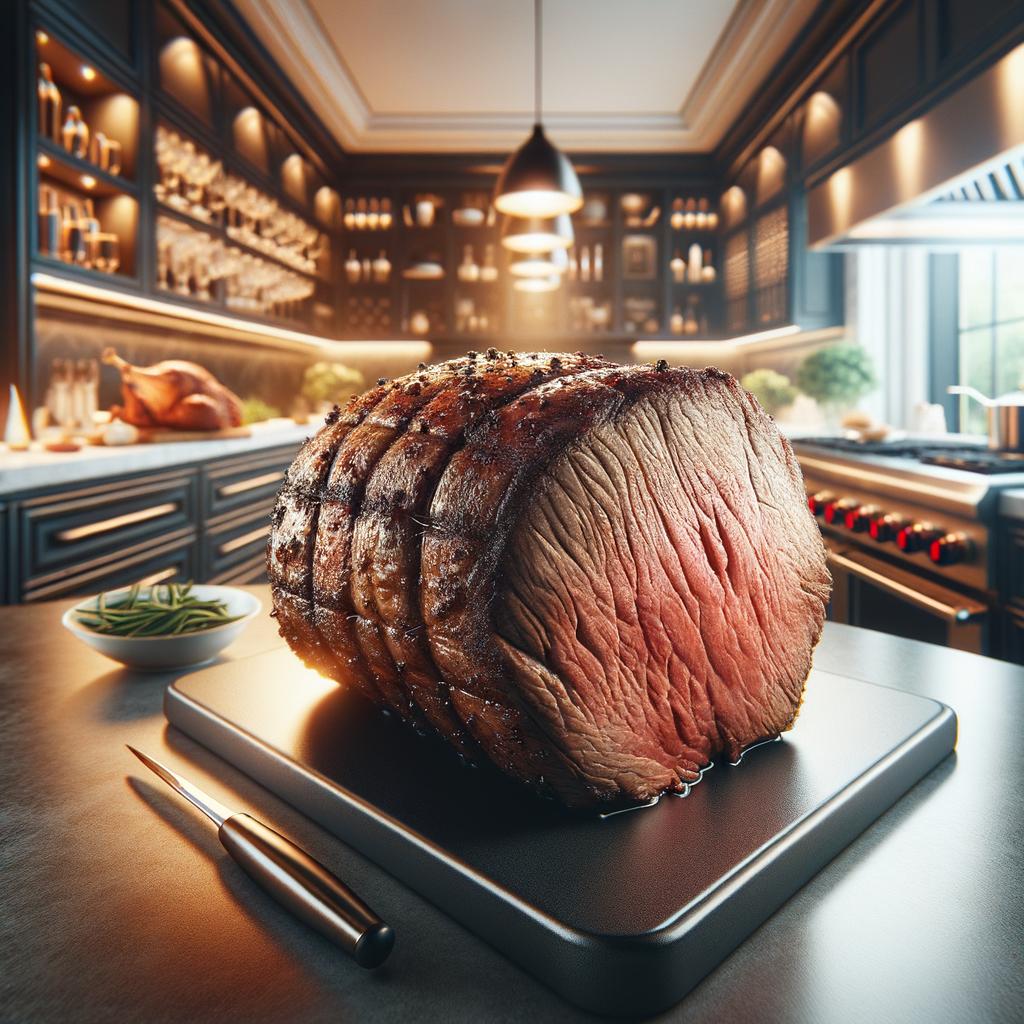Beef Roast

Description Beef roast, a cut of meat from the cow, is an ingredient that is as versatile as it is delicious. It is a large, thick piece that is often maroon or rich brown in color, with streaks of white fat marbling throughout. The texture of a cooked beef roast can range from tender and juicy to firm and chewy, depending on the cooking method used. The flavor profile is robust and hearty, with a savory, meaty taste that is often enhanced by various seasonings. What sets beef roast apart from similar ingredients is its ability to absorb flavors while maintaining its own distinct taste, making it a favorite in many cultures worldwide.
Primary Uses Beef roast is commonly used in a variety of dishes, from the classic Sunday roast to the comforting pot roast. It's a staple in many global cuisines, from the French 'Boeuf Bourguignon' to the American 'Beef Pot Roast', and the British 'Sunday Roast'. It's also used in stews, sandwiches, and even salads. Beyond culinary uses, beef roast has cultural significance in many societies, often being the centerpiece of holiday meals and special occasion feasts.
History The history of beef roast is as rich as its flavor. It dates back to the domestication of cattle, where it was often reserved for special occasions due to its size. In medieval Europe, beef roast was a symbol of prosperity and was often served at banquets and feasts. Over time, its popularity spread across the globe, with each culture adding its unique twist to the preparation and presentation. In the United States, for example, the tradition of the Sunday roast came from the United Kingdom, but Americans made it their own by slow-cooking it with potatoes and carrots. There's a romantic notion tied to the beef roast, often evoking memories of family gatherings, holiday meals, and the warm, comforting aroma wafting from the kitchen.
Nutritional Information Beef roast is a nutritional powerhouse, rich in protein, vitamins, and minerals. It's an excellent source of Vitamin B12, zinc, selenium, iron, niacin, and Vitamin B6. These nutrients are essential for various bodily functions, including supporting immune health, aiding in red blood cell production, and maintaining healthy skin and eyes. However, it's important to note that beef roast can be high in saturated fat, so it should be consumed in moderation as part of a balanced diet. Compared to similar ingredients like pork or lamb, beef tends to have a higher protein content and a broader range of essential nutrients, making it a valuable addition to many meals.

